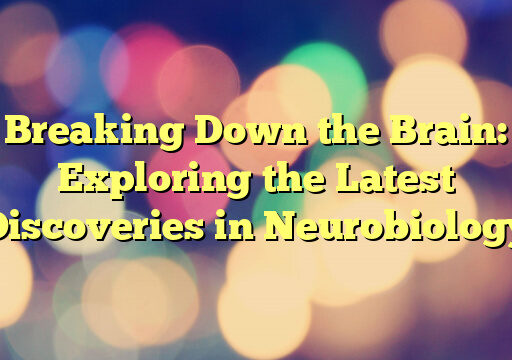The brain is one of the most complex organs in the human body, composed of billions of neurons that communicate with each other to process information and control our thoughts, movements, emotions, and behavior. The organization of the brain plays a crucial role in how we perceive the world around us and interact with it.
What is Brain Org?
Brain Org is a term used to describe the organization of the brain's structure and function. It refers to the way different regions of the brain are interconnected and work together to perform various cognitive functions. Understanding brain org can help researchers and healthcare professionals better understand how the brain works and how it can be affected by various conditions and diseases.
The Anatomy of the Brain
The brain is divided into different regions, each with its own specific functions. These regions include the cerebrum, cerebellum, and brainstem. The cerebrum is the largest part of the brain and is responsible for higher cognitive functions such as thinking, reasoning, and voluntary movements. The cerebellum is located at the back of the brain and plays a role in coordinating movement and balance. The brainstem connects the brain to the spinal cord and controls basic functions such as breathing, heart rate, and digestion.
The Function of the Brain
The brain is responsible for a wide range of functions, including sensory processing, memory, language, emotional regulation, and motor control. These functions are carried out by different regions of the brain working together in a coordinated manner. For example, the prefrontal cortex is involved in decision-making and impulse control, while the hippocampus is responsible for memory formation and retrieval.
Brain Org and Cognitive Abilities
Research has shown that the organization of the brain plays a crucial role in determining our cognitive abilities. For example, individuals with a well-connected brain network may have better memory and problem-solving skills compared to those with a less organized brain network. Understanding brain org can help identify individuals at risk for cognitive decline and develop interventions to improve cognitive function.
Conclusion
Brain Org is a complex and fascinating field of study that is essential for understanding how the brain works and how it can be affected by various conditions and diseases. By studying the organization of the brain, researchers can gain insight into the mechanisms underlying cognitive abilities and develop strategies to improve brain function. As our understanding of brain org continues to evolve, we can expect to see exciting new discoveries that will further enhance our knowledge of the human brain.
FAQs
What factors influence brain org?
Brain org can be influenced by a variety of factors, including genetics, environment, and development. Studies have shown that experiences such as education, social interactions, and physical activity can shape the organization of the brain.
Can brain org change over time?
Yes, brain org is not fixed and can change over time in response to experiences and environmental factors. Neuroplasticity is the brain's ability to reorganize itself by forming new connections between neurons, which allows for learning and adaptation.
How can brain org be studied?
Brain org can be studied using neuroimaging techniques such as functional magnetic resonance imaging (fMRI) and diffusion tensor imaging (DTI). These techniques allow researchers to visualize the structure and function of the brain and identify patterns of connectivity that underlie cognitive abilities.
Unlock Your Mental Potential




